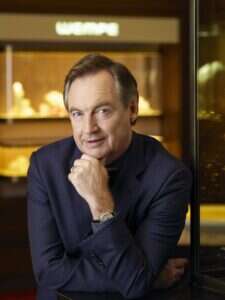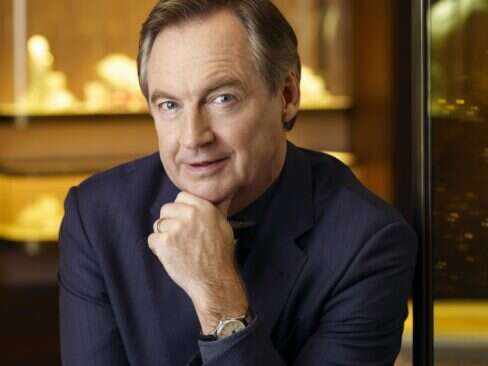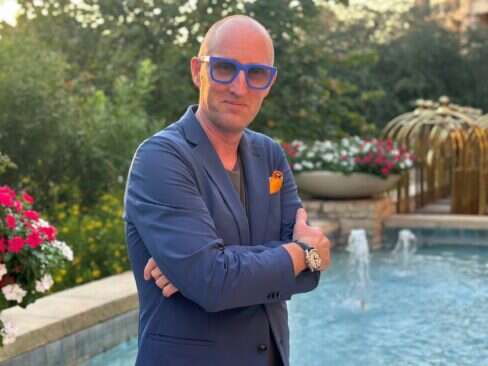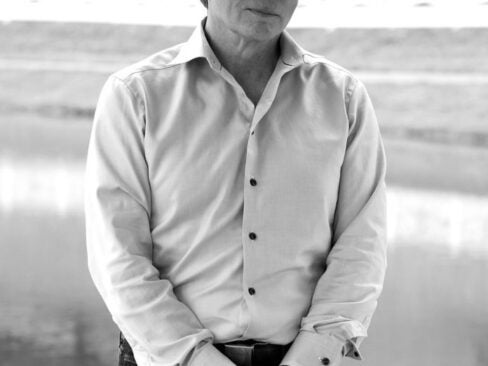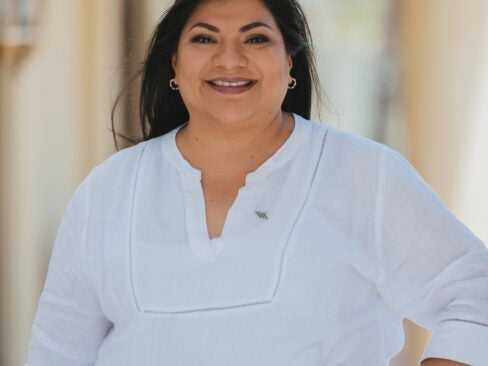
HeadF. P. Journe
Francois-Paul Journe has made his way quickly to the peak of Switzerland’s competitive landscape to top watchmakers. His F.P. Journe watches are favorites with collectors and often sell above retail price. Recently Elite Traveler Editor-in-Chief Douglas Gollan was able to get Mr. Journe’s perspectives on making fine timepieces and enjoying the good life during a break in Geneva.
ET: How did you get involved in watch-making? FP Journe: I was not a very good student because I was bored in class. My parents, not knowing what to do with me, sent me to watch-making school, and there, I finally discovered something that impassioned me. I was lucky enough to have an uncle, a restorer of antique watches and clocks in Paris, and he enormously contributed to feed this incredible interest I had for watch-making, and that became my passion, my life.
ET: Why are you so passionate about watches and from what age did watches interest you? FP Journe: When I started to study watch-making at school and then discovered the great masters of 17TH and 18TH centuries while working in my uncle Michel’s workshop, I had only one idea in mind: Learning more and always more about these great men. I mounted and dismounted, with delight, ancient pocketwatches brought for repair by clients. At the same time, I started in 1977 to make my first pocketwatch with a tourbillon, a watch that I finally completed in 1982. From that moment on, I started to receive orders from a circle of informed collectors for one-of-a-kind creations with complicated mechanisms. Each of the unique pieces I was creating was the result of countless hours of research, that I then saw disappear into the world when the commissioner took his watch. Then I began dreaming about a collection of watches offering the same qualities of those bespoke pieces–comfort, innovation and performances–but for a wider public.
ET: When you are creating a new timepiece, where do you get your inspiration? FP Journe: Inspiration arrives by itself, depending on the circumstances. For example, I have a watch, that’s been in preparation for four years, which was inspired by my son. Sometimes a random discussion starts me on the way, sometimes an idea comes to me when I travel, on a train for instance, and I start drawing. But I never asked myself, “What idea am I going to find?”
ET: You have become successful very quickly. Are there any lessons, good or bad, you have learned from such a fast rise? FP Journe: No, there is no recipe. I have always made watches I wanted and I loved. It is the collectors’ increasing demand in the past decade or so that has made me what I am today. I tried to simply answer their needs, without putting quality in danger, and kept a very limited production. It is always the clients and collectors who create success against impossible odds.
ET: How do you deal with the pressure of having to come up with the next great watch? FP Journe: There is no pressure as far as inspiration is concerned. The most difficult aspect is to manufacture the timepiece, and that is also the most time-consuming part–finalizing and regulating to obtain utmost reliability. I have a number of projects in waiting, but to walk, you have to start by putting one foot in front of the other.
ET: Outside of work, what hobbies do you have? FP Journe: I love painting, but unfortunately, I have no time to use my brushes. I should have a second life to do that.
ET: Do you like to travel for pleasure? If so, tell us about two or three of your favorite places to go? FP Journe: Being born in Marseille, I was privileged to spend my holidays by the sea. I change destinations each time I go on holiday, but while the land location changes, the sea remains the same.
ET: Do you have any favorite hotels or resorts? For business? For pleasure? FP Journe: I have frequently stayed at the Grand Hyatt in Tokyo for business since its opening in 2003, which actually coincides with the opening of our boutique-lounge in Omotesando (the St-Germain-des-Prés of Tokyo), which is just two steps away from the splendid Nezu museum. The Tokyo boutique is nestled in one of the most beautiful architectural expressions of spirituality and has already become a place of reference for the devotee of contemporary chronometry. While I keep an apartment in Paris, my favorite hotel there is definitely the Ritz.
ET: Do you ever travel by private jet? If so, what is your impression of the experience? FP Journe: I’ve had the chance to enjoy this mode of transportation on numerous occasions, and I must admit that it gives you an amazing freedom of time management.
ET: As the owner of a successful and growing business, how do you divide your time between creating watches and managing the day-to-day details of commerce? FP Journe: I spend 60 percent of my time creating, inventing and researching and another 40 percent of my time managing the company. It doesn’t matter so much that you are responsible for a wide range of activities if you can make the right decisions, at the right moments, and surround yourself with the right people. When I travel, I am gone from headquarters for 10 to 15 days at a time, and I do it with a free mind. I know our company works; I am not constantly calling to be kept informed. If there is a problem, they call me. I delegate a lot, and my team has my whole trust. On the other hand, projects remain my exclusive property. I initiate and define them 100 percent. As I said, the creativity necessary for this work comes at all times…it is easier to concentrate, on a train for instance, when there is no one to disturb you about the day-to-day. You relax and let your spirit wander, and things come to mind automatically. Also, being financially independent allows me to reinvest the whole of the profits of the firm into the development of working tools.
ET: What are your biggest challenges as a business owner? FP Journe: The creation of the Grande Sonnerie watch was quite a challenge. The Grand Strike is the most complicated of all watch-making functions. My version required 10 patents (which is the source of the “Invenit” (invent) part of our motto) and six years of research and development to make (the “Fecit” (made) portion of the motto). The F.P. Journe Grande Sonnerie has no equal in the whole world. It is the most complete and the most achieved timepiece ever made.
ET: Are there any big developments coming for F.P. Journe in the next year? FP Journe: We will complete the verticalization of our manufacturing, which is the only manufacturing operation in the town of Geneva, and complete our boutique-lounge network to be closer to our clients and give them the professional and qualified service they expect from us. To solidify our independence, we are already producing 90 percent of our movement components and will soon be completely self-produced. We are also producing our own dials as well the cases for our watches. And, as far as new creations are concerned, the future is already in process. Look for chronometry watches of unequalled precision, more playful timepieces and finally, an absolutely revolutionary women’s collection. Anything else is “top secret.”
ET: If you were not a watchmaker, what would you have done for a career? FP Journe: I don’t know, but as I love mechanics, maybe I would have worked in the automobile industry.
ET: Many times successful independent watch companies are bought by bigger houses. Could you ever see yourself selling F.P. Journe, and if so, what would you do after? FP Journe: Clearly there those who only set up a business to sell it and make money. It is simply not the case with me. I have been in the watch industry since the age of 14, and as Moliere said: “I shall die on stage!”






